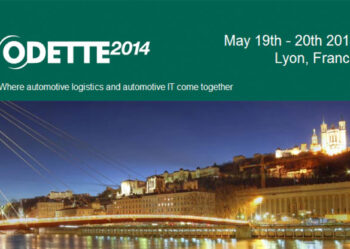A priority for the industry of the future
Freight transport accounts for about 15% of greenhouse gas emissions in France, making it a key area for reducing the industry’s carbon footprint.
Main levers for decarbonizing the supply chain
Optimization of logistics flows
We optimize flows by reducing the kilometers traveled by goods. For example, we have implemented a planning system between an automobile manufacturer and its suppliers for seat transportation. This reduced the kilometers traveled by trucks in France by 35% thanks to a SNECI warehouse located near the supplier’s facilities.
Cleaner modes of transport and fuels
We promote less polluting modes of transport, such as rail and river transport. For deliveries from Asia to eastern France, we prioritize arrival at the port of Rotterdam, allowing for delivery via river transport. We also integrate biofuels, hydrogen, and electricity into our choices.
The impact of new technologies
Artificial Intelligence
AI is used to improve transport planning, optimize inventory, and reduce losses. AI-based flow optimization software is becoming increasingly common among carriers. Large companies’ integrated management systems (ERP) now include measuring and reducing the CO2 footprint.
Internet of Things (IoT)
IoT allows real-time tracking of goods (asset tracking), optimizing production schedules through better knowledge of inventory levels.
Augmented and virtual reality
These technologies train employees in sustainable logistics and reduce errors. For example, at DHL, augmented reality glasses assist order pickers, reducing movement and increasing safety.
Main challenges encountered
Stanislas Bailly identifies three major obstacles: the cost of necessary investments, the lack of harmonized standards, and the lack of data.
Leading industries and lagging sectors
The automotive industry is at the forefront of decarbonization, with manufacturers demanding documentation of their suppliers’ carbon footprints. Conversely, the defense industry, due to sovereignty issues, is less advanced in this process.
Prospects for decarbonizing the supply chain
Companies’ efforts are beginning to bear fruit, but much remains to be done to achieve the ambitious greenhouse gas reduction targets. France’s National Low Carbon Strategy (SNBC) and the European Union’s goals aim for significant reductions by 2030 and 2035, with carbon neutrality to be achieved by 2050.
At SNECI, we are committed to providing local and sustainable solutions to our over 450 clients worldwide to meet the challenge of decarbonizing the supply chain and contribute to a greener future.






